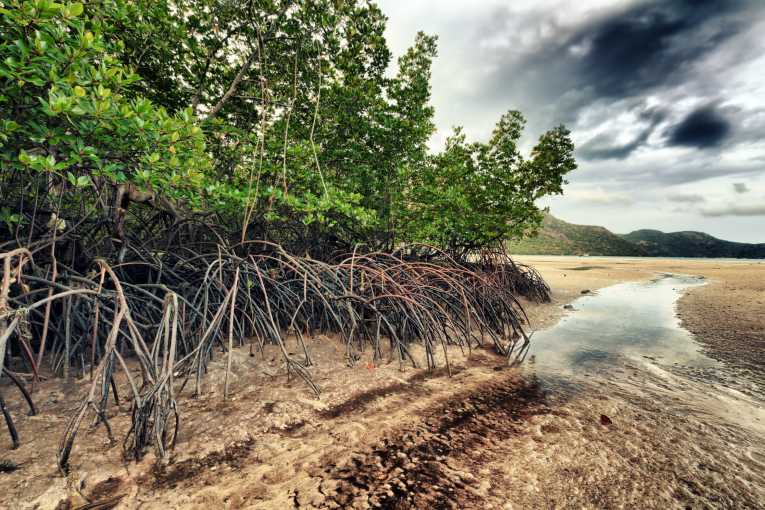Coastal wetlands, which include mangroves, tidal marshes and seagrass meadows, remove carbon from the atmosphere and lock it into the soil. Unlike terrestrial forests, coastal wetlands continually build 'carbon pools', storing huge amounts of carbon. If coastal wetlands are drained, for example to convert the land for agricultural use, they emit large amounts of CO2 into the atmosphere.
The International Union for Conservation of Nature (IUCN) is using the World Bank's report as a call to action. They want local people to be incentivised to protect and restore these vital coastal wetlands. The IUCN highlights this shocking statistic from the report: of the 15 wetland deltas studied in the report, 7 were found to have released more than 500 million tons of CO2 each since the wetlands were drained.
Carl Gustaf Lundin, Director of the IUCN Global Marine and Polar Programme, says ''We must work with nature to reduce greenhouse gas emissions, but also restore the ability of nature to take carbon out of circulation. CO2 emissions from lost or degraded coastal wetlands are sufficiently large to warrant amendment of national and international climate change policy frameworks to promote restoration.''
Coastal wetlands are vital habitats. Not only do they sequester vast amounts of CO2, they also provide coastal communities with essential shelter from storm damage and flooding. In addition, coastal wetlands have been shown to increase local fishery productivity. Marea Hatziolos, Senior Coastal and Marine Specialist at the World Bank, says ''If wetlands conservation can be linked to carbon markets, communities have a way to pay for conservation which will generate local and global benefits''.
The report suggests that communities and conservation organisations manage wetlands to ensure optimum provision of ecosystem services, such as storm protection. This will complement existing nature-based solutions that reduce the effects of climate change. For local communities, wetlands are vital for wellbeing and prosperity. For the wider world, wetlands are a key component in mitigating the effects of climate change.










